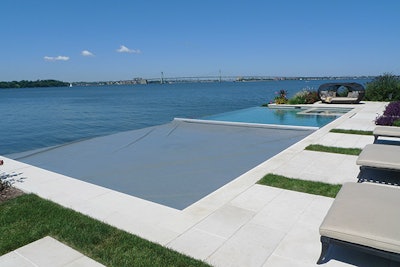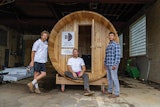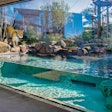
Back in the salad days of my college education, one of the better classes I took was Logic 101. It was a terrific course that taught a level of mental discipline and thought structure that has served me quite well over the years. There’s a lot to be said for breaking down questions, discussions and debates into to their logical framework.
An exercise from that class that stands out in my mind was to identify and describe something — an action, object or concept — that is uniformly positive, meaning possessing only benefits with no downsides. Then we had to present our argument to the class for discussion.
Most people picked things like exercise, good nutrition, meditation or common courtesy. I went in a different direction and chose as my subject “maintaining proper automobile tire inflation.” The argument being that keeping your tires inflated to spec results in maximizing gas mileage, increased safety, greater handling and longer product life. I made the case that based on those significant benefits the small amount of time and effort required was entirely worthwhile.
I received an “A” on that particular assignment.
Going forward, I’ve not only religiously inflated my tires, I’ve also kept in mind the value of identifying things that offer important benefits with minor detriment. It’s certainly been a useful way to develop good habits and it’s surprisingly interesting.
All of which leads to the nugget of this little epistle: In the world of swimming pools, there are a relatively few things that fit that all-upside rubric. Proper water chemistry and filtration are both biggies. Many would argue that automatic pool cleaners, variable speed drive pumps, control technology and even LED lights would make the cut, as well.
And, I contend, the same goes for automatic pool covers. Here’s why:
Pools, for all of their wonderful characteristics including beauty, fun, prestige, etc., do, in point of fact, come with a handful of genuinely problematic issues. Without getting wrapped around the axle on this one, they can be hazardous in that all bodies of water present elements of risk. Pools also can be costly to operate, especially when they are heated. And they can require considerable effort to clean and maintain.
That’s all self-evident enough, and so is the fact that overcoming those issues is often a big part of selling pools, and understandably so. I believe that finding ways to mitigate those concerns is in many instances necessary in terms of maximizing the consumer experience. Remove the worry, reduce cost and ease the burden of maintenance and people are freer to focus on the reasons they wanted a swimming pool in the first place.
Let’s look at the operating cost issue. According to data generated by the U.S. Department of Energy and supported by various other sources, a full 70 percent of the energy used to heat a pool is lost by way of evaporation. That’s true in both outdoor and indoor pools. Outdoors, evaporation is accelerated by wind and can be dramatically reduced by a solid cover. Indoors, evaporation means that the air in the pool area must be ventilated, in which case the owner experiences both the cost of heat loss due to evaporation and the cost of running the HVAC and/or dehumidification system, but when the pool is covered, the need to remove moisture and turn over the air is close to eliminated.
Consider this interesting factoid: According to the DOE’s Reduce Swimming Pool Energy Costs campaign, an effort that dates all the way to 1992, “It only takes 1 Btu to raise 1 pound of water 1 degree, but each pound of 80-degree water that evaporates takes a whopping 1048 Btu’s of heat out of the pool.”
In one of the presentations that emerged from RSPEC, researchers estimated that Americans were spending $3.5 billion to heat pools at that time — spas not included. Given that energy costs have only increased in recent years, and assuming even the conservative side of the savings range of 50 to 70 percent, the energy savings realized by covering up are astronomical.
Considering the benefit of “automatic” covers, it is true that those types of savings can be realized with what some refer to as “solar” or “bubble” covers, which do provide a vapor barrier. However, that’s where the other benefits come into play. Solar covers, while great at saving energy, do nothing to increase safety, and they’re a pain to deploy and remove. Mesh safety covers, by comparison, provide safety, but are permeable, so they don’t save energy and they too are laborious to use.
Now make no mistake, I’m not remotely criticizing those products because they do have benefits, no question. But only the automatic cover answers the comprehensive set of concerns, saves energy, provides safety and is easy to use, along with saving chemicals, water and keeping the pool clean. Of course, the counter argument is that auto covers are far more expensive than are other cover types.


That’s true, but the answer there is that they do provide a quantifiable return on investment for many pool owners. How rapid that ROI is depends on a range of factors including surface area of the pool, climate, desired water temperature, how much of the time the pool is covered verses uncovered, energy pricing and others.
That’s quite a bundle of x-factors to weigh, therefore, making the case to pool owners who are considering a cover can be imprecise. Fortunately, as part of the RSPEC program (albeit way back in 1993), the DOE developed software called Energy Smart Pools.
Unfortunately, given that the RSPEC program is no longer funded or supported by staff, coupled with the age of the software, that particular software package is probably of limited use these days. (However, it’s still available online if you’re interested.) The good news is that there are other resources you can use to calculate energy usage and savings including an online energy calculator launched in January 2011 by the Washington Energy Extension Service on EnergyExpert.org.
Returning to the notion that automatic covers have no downside, that’s not entirely true. Aside from the initial cost, which will be offset by savings in most scenarios, automatic covers still for the most part require a rectilinear pool shape. Yes, there are louvered auto covers available these days for non-rectangles, but those are not technically speaking “safety” covers and are extremely expensive. Also, there are construction details such as what some call the “extreme cantilever” that enables a cover to fit over a freeform pool, but again, at significant cost.
With the rectangular limitation in mind, we can conclude that automatic covers do fall a notch or two short of the “no downside” logic standard. Subjectively speaking, however, I argue that rectangular pools are often among the most beautiful built, largely due to the elegant simplicity of the shape. And given the benefits of covers — which also include water conservation and reduced chemical consumption — the shape issue will, for many people, be a reasonable compromise or no compromise at all.
In discussing this with various skeptics, it’s been pointed out that covers don’t look good — that if you want a pool for beauty’s sake, then covers completely defeat the purpose. That’s arguably a fair challenge.
Leaving aside the fact that covers do come in various colors that help designers and builders blend them with their surroundings, the bigger argument on the appearance front is simply that no one looks at their pool all the time. Again, drawing an automotive analogy, you could make the same argument about car covers or even garages in that they conceal the good looks of a beautiful ride, but only when the car’s not in use.
If you want to sit out by your pool with morning coffee, then press the button and pull back the cover for however long you want to enjoy the water. The same goes for any other time you want the beauty factor in play. But when the pool is being ignored (which, for most people, will be most the time), then leave it covered to prevent Btus from bleeding into the air, put a cap on chemical off gassing, avoid debris from falling in the water, or worse, should a person accidentally fall in while the pool is unattended.
My point in all of this is not necessarily to promote automatic covers per se, although I do obviously think that in many situations they’re a good idea, but more to make the argument that when it comes to the objections or reservations many people have about pool ownership, we have at our disposal a range of solutions and discussion points that address those concerns.
Whether those exchanges take place in person, online, in print or over the airwaves, basic logic is a powerful tool.
Comments or thoughts on this article? Please e-mail [email protected].












































